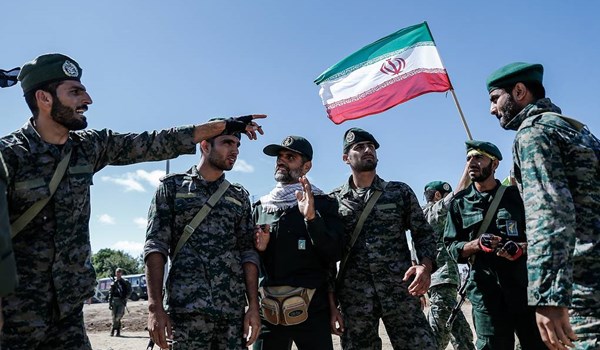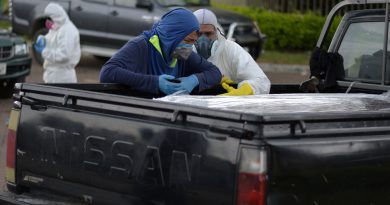ANALYSIS: How the IRGC is gearing up for more control in Iran
by Cyrus Yaqubi
IRGC has been very active in producing and making movies and TV shows and has made its presence known in most of Iran’s TV channels.
Most executive institutions in Iran are somehow under the control and supervision of the Velayat-e Faqih, aka the Supreme Leader, Ali Khamenei. However, town, and village council elections are the only vote in Iran that are held without the direct supervision of the Guardian Council.
Therefore, efforts have been made to control and monitor these elections in various ways. For example, on January 13, Ali Haddadi, a spokesman for the Iranian parliament’s internal affairs commission, said Parliament was considering a plan to employ the intelligence services of the IRGC in the approval process of town and village council candidates.
Ali Haddadi said the plan “aims to prevent councils from deviating, to monitor their performance and to form an efficient council”. By implementing this plan, the IRGC can approve or reject the qualifications of candidates before the elections without any legal impediments.
There have been several instances where town and village council members have drawn the ire of various ruling establishments because of their remarks, or by simply taking a stance on policies or getting involved in matters beyond their jurisdiction.
For example, Mehdi Hajati, a member of the Shiraz City Council, spoke out against the arrest of two Baha’i citizens and criticized officials’ actions regarding the COVID-19 pandemic. He was expelled from the council, under the pretext of “unjustified absence” from council meetings for two months and was arrested himself.
Another example is Mohammad Parham, a member of the Borujerd city council, who posted a video comparing the leaders of Iran and Finland last January. He was arrested and charged for insulting the leadership.
By implementing this new system of supervision on the election process of town and village councils, Khamenei can effectively eliminate those not affiliated with him through the IRGC.
Basij involved in all projects
Furthermore, changes are going to be made by the parliament to a law on the authority of the IRGC’s paramilitary branch, known as the “Basij”. The most important of these amendments is about changing the word “authorized” to “obligated” in the second article of the law.
According to this law, all ministries, government and public institutions, and companies, especially the ministries of Agricultural Jihad, Health, Treatment and Medical Education, Roads and Transportation, Cooperation, Energy, Labor and Social Affairs, Education, Welfare and Social Security, the Environmental Protection Agency, the Presidential Office on Deprived Areas, the Red Crescent Society, the Khomeini Relief Committee, municipalities and rural districts are “obliged, relative to the level of readiness by the Basij, to carry out part… of their relief, cultural and humanitarian activities, plans and projects with the use of Basij forces.”
Therefore, if this law is approved, the Revolutionary Guards will be involved in almost all projects throughout the country.
Movies and TV shows
Long before this, the Revolutionary Guards had established their presence and influence in Iran’s cultural affairs as a security and intelligence institution for more control and to advance Khamenei’s intentions. For this reason, the IRGC created a television network called “Ofogh Network.”
This network is entirely independent from the Islamic Republic of Iran Broadcasting, a state-controlled media corporation which holds a monopoly of domestic radio and television services in Iran.
The IRGC affiliated Owj Arts and Media Organization oversees the network’s content. In recent years, the IRGC has been very active in producing and making movies and TV shows and has made its presence known in most of Iran’s TV channels. They often broadcast their own narratives on domestic and international contemporary history and current affairs.
These programs are entirely financed and technically supported by the IRGC.
COVID-19
To extend its influence, the IRGC got itself involved in so-called Coronavirus “preventive” measures. These measures ranged from symbolically disinfecting streets with pure water, to showcasing a ludicrous “coronavirus detector” in addition to claiming to have developed a COVID-19 vaccine.
The IRGC’s “Coronavirus Detector-110″ was unveiled by the IRGC’s Commander in Chief, Hossein Salami, in the initial phases of the COVID-19 outbreak. The detector was later revealed to be the same device sold to Iraq as a fake “bomb detector” by a British company which cost the Iraqi government millions of dollars.
Three months ago, Salami once again claimed to have found a very effective solution to fight the virus. On November 10, 2020, he announced that about 54,000 Basij bases were to “attack” areas where the coronavirus had taken up residence and go door to door.
Salami claimed that this operation was intended to separate the infected from the non-infected and to refer the infected to treatment centers. Of course, this was nothing but another attempt at searching people’s homes and had nothing to do with countering COVID-19.
This plan was so ridiculous and ineffective that it was abruptly abandoned, and no further mention of it has been heard since.
In another comical statement, after the assassination of Mohsen Fakhrizadeh, the IRGC claimed that Fakhrizadeh, known as the “Father of Iran’s missile industry” and the “mind behind the nuclear industry”, was actually in the process of developing a coronavirus vaccine before his death.
Economy
Of course, the most essential intervention of the IRGC are its prominent footsteps in Iran’s economy through the Khatam-al Anbiya Central Headquarters, which has been the principal recipient of government contracts in most construction, road building and oil projects.
The Khatam-al Anbiya Central Headquarters has gradually turned the government’s executive branch into one of its major debtors. Now, Khatam-al Anbiya is considering confiscating several government properties that have been put up for sale to fund the government’s budget.
“Young Hezbollah government” and Iran’s 2021 elections
The volatility and hidden potential of widespread protests in Iran is very much the most significant concern of Khamenei. The rifts and conflicts of opinions, corruption and mismanagement within different government branches could trigger a regime-changing movement within Iran.
In an effort to prevent the new potential wave of protests, Khamenei is trying to unify the state for maximum control.
Many believe that the appointment of former IRGC commander Mohammad Bagher Ghalibaf, as Parliament Speaker could be considered a decision in this direction.
In a recent speech, Khamenei once again called for the establishment of a “young Hezbollah government” for the upcoming presidential election in June 2021.
He also mentioned that by young, he meant someone in the lines of dead Quds Commander Qasem Soleimani.
IRGC commanders are taking advantage of Khamenei’s remarks by gradually controlling all reigns of power and readying themselves for a military government that will quash all dissent.
However, as history has shown, when a nation stands up, no military government or dictatorship can stop their determination and desire for change.
This is an undeniable fact, given the widespread public dissatisfaction with Khamenei’s religious rule.
Cyrus Yaqubi is a Research Analyst and Iranian Foreign Affairs Commentator investigating the social issues and economy of the middle east countries in general and Iran in particular.



